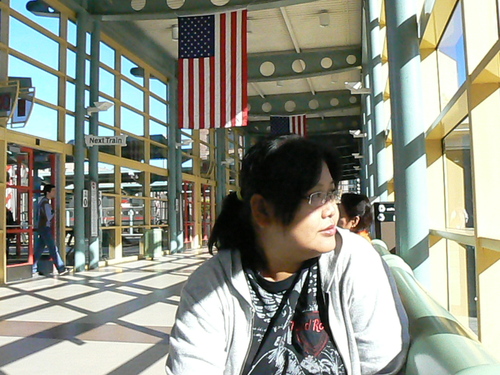WINNIE the POOH'S HISTORY
The story of Winnie the Pooh started when a young vet living in Winnipeg, Canada, was stretching his legs on a train platform in Ontario. This man, Harry Colebourn, was serving in the Canadian Army at the time. He saw a man cradling a tiny orphaned black bear cub, and bought it for $20. The bear, who Harry called Winnie after his hometown in Winnipeg, became the Canadian Army's mascot. After coming to England, Harry Colebourn and the other Canadian soldiers had to go to France, so Winnie was put in the care of London Zoo. When Lieutenant Colebourn came back from France, he found that Winnie was having such a wonderful time at the Zoo that he decided to let him stay there forever. Winnie lived until 1934.
Christopher Robin was one of Winnie's greatest fans, and was allowed to go inside the cage with him. Here is a passage from the introduction to "Winnie the Pooh".
So when Christopher Robin goes to the Zoo, he goes to where the Polar Bears are, and he whispers something to the third keeper from the left, and doors are unlocked, and we wander through dark passages and up steep stairs, until at last we come to the special cage, and the cage is opened, and out trots something brown and furry, and with a happy cry of "Oh, Bear!" Christopher Robin rushes into its arms.
Since Christopher Robin loved Winnie so much, he renamed the bear that he had received for his 1st birthday, Edward Bear, and called him Winnie the Bear. A poem from "When We Were Very Young" tells that Christopher Robin met a swan, and called him Pooh, but the swan has gone now, so Christopher Robin changed Winnie the Bear to Winnie the Pooh in honor of the swan.
Christopher Robin's father, Alan Alexander Milne, loved to watch Christopher Robin and Pooh play together in Ashdown Forest, so he wrote stories about them, along with Christopher Robin's other toys, Piglet, Tigger, Eeyore, Kanga and Roo. He also made up the characters Rabbit and Owl, based on real animal living in the Forest. In the stories, Asdown Forest was called the Hundred Acre Woods. "Winnie the Pooh" was published in 1926, followed by "The House At Pooh Corner" in 1928.
In 1961 in America, Walt Disney was reading the Pooh stories to his children. He liked the idea of Winnie the Pooh and his friends, so he decided to use Pooh in a movie. After all of the neccesary paperwork, Walt set out to create his dream. In 1966, "Winnie The Pooh And The Honey Tree" was a big success, and in 1968, "Winnie The Pooh And The Blustery Day" won an Academy award. In 1974 another Pooh movie was made, called "Winnie The Pooh And Tigger Too".




